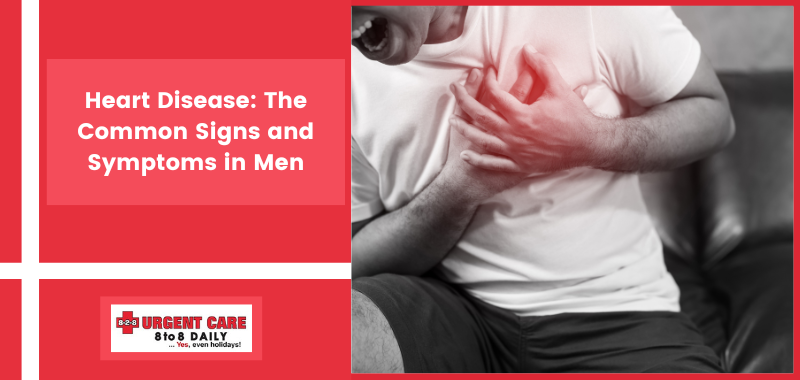


Heart disease is the silent epidemic affecting millions worldwide, and yet many remain unaware of the subtle signs that could save their lives. In fact, in the United States alone, heart disease is the number one cause of death among men, with one in four male deaths linked to it.
Despite its prevalence, many men remain unaware of the early warning signs of heart attack and other cardiovascular conditions. Some symptoms may be mild or easily mistaken for fatigue, indigestion, or stress, leading to delayed treatment. Understanding these warning signs is crucial to prevent serious outcomes such as heart failure, disability, or sudden death.
Let’s take a closer look at the symptoms men often ignore.
Heart disease refers to a group of conditions affecting the heart and blood vessels. The most common types include:
Men are at higher risk of heart disease than women due to a combination of genetics, lifestyle factors, and hormonal influences. Testosterone levels, combined with lifestyle habits such as higher rates of smoking and alcohol consumption, contribute to earlier onset and more severe heart complications in men.
Heart disease often begins quietly, presenting subtle symptoms that are easy to overlook. Some men experience silent heart attacks, where heart muscle damage occurs without the classic chest pain. Early warning signs can include:
Discomfort in the upper body (neck, jaw, arms, or atypically in the upper back)
Regular medical check-ups and discussions about heart health are critical. Detecting these early symptoms can prevent severe complications down the line.
Understanding the most common symptoms of heart disease can empower men to take action before a serious event occurs.
Often described as pressure, squeezing, or fullness, chest pain is the classic heart attack symptom, but it may not always be severe. Even mild discomfort should not be ignored.
Difficulty breathing during activity, or even at rest can indicate underlying heart problems. This symptom often accompanies fatigue and may signal heart failure.
Persistent tiredness, despite adequate rest, can be an early sign of heart disease. Men often dismiss fatigue as work-related stress, but it can be an indicator of poor heart function.
Skipped beats, fluttering sensations, or a rapid heart rate may signify arrhythmias or other cardiac conditions that require evaluation.
Feeling faint or dizzy can occur when the heart cannot circulate blood effectively. This symptom, particularly when combined with chest discomfort, requires urgent attention.
Fluid retention may indicate heart failure, as the heart struggles to pump blood efficiently. This swelling can worsen over time if left untreated.
Radiating pain is a common warning sign of a heart attack in men. Discomfort may start in the chest but spread to these areas, sometimes without noticeable chest pain.
Certain lifestyle and genetic factors increase the likelihood of heart disease:
Immediate medical attention is necessary if men experience:
Even if symptoms are mild, preventive screening, including blood pressure checks, cholesterol tests, and ECGs, can detect issues early, improving outcomes.
Preventing heart disease is possible with conscious lifestyle choices:
Your heart works tirelessly for you every day; it's time to return the favor. By recognizing the early warning signs of heart disease and taking proactive steps, you can protect yourself from serious complications. Simple lifestyle changes, regular check-ups, and staying mindful of your body’s signals can make a world of difference. Don’t wait for a crisis; prioritize your heart health today and enjoy a longer, stronger, and healthier life.
Heart disease in men can strike silently, but early detection saves lives. At 8-2-8 Urgent Care, we specialize in identifying subtle heart warning signs, from fatigue and shortness of breath to irregular heartbeats.
Don’t wait for symptoms to worsen; contact us today and take control of your heart health before it’s too late. Our team will walk you through our mobile self-check-in from the comfort of your home. 760-216-6253